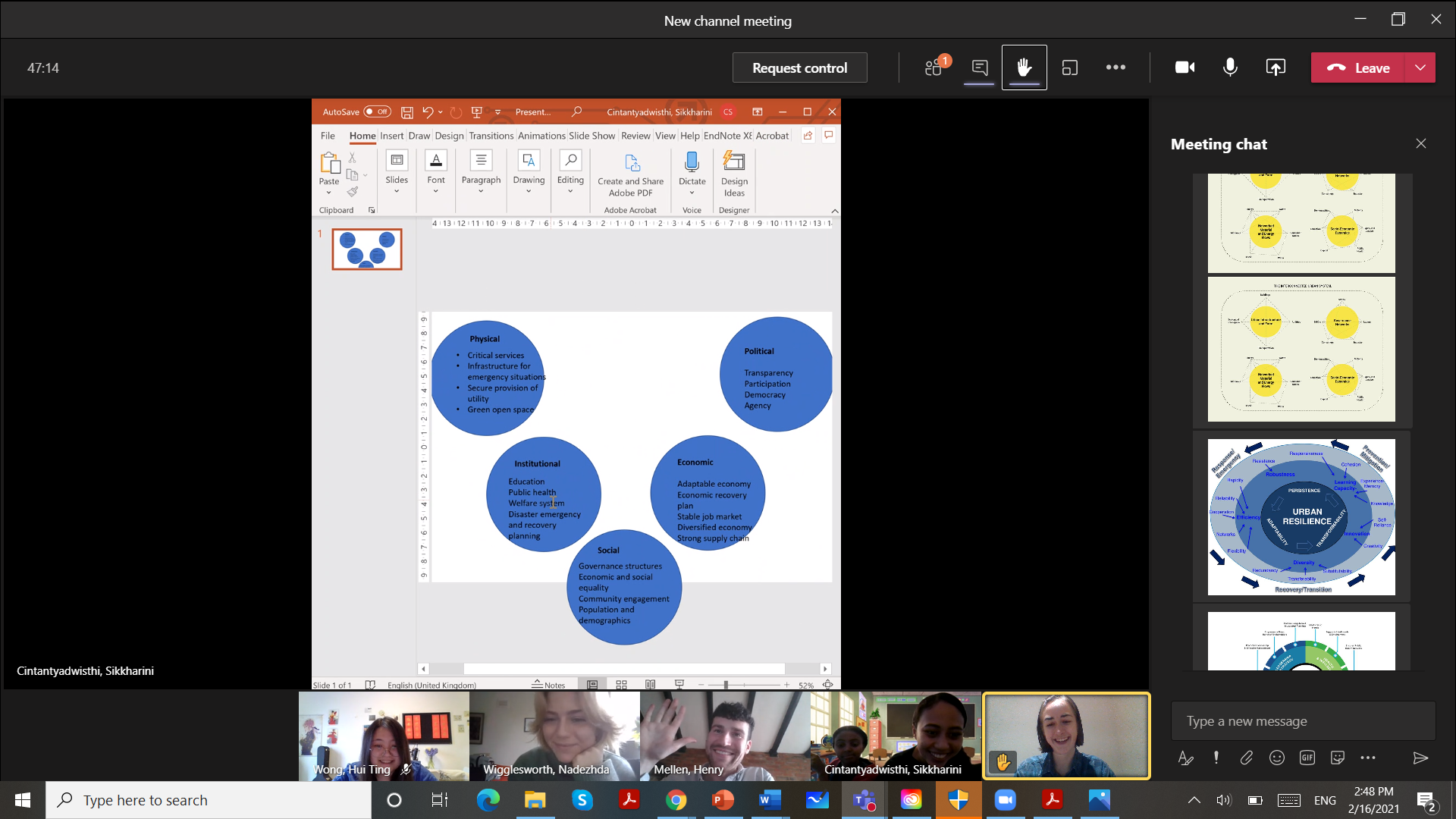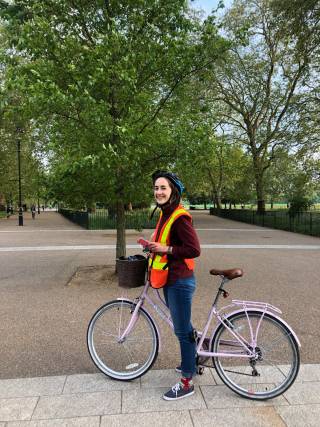Working effectively in a group
Group working is a key part of coursework at The Bartlett. While it presents challenges and can bring up frustrations, it can also lead to amazing results that can only be achieved with collaboration. In this blog, I’ll discuss some tips for groupwork success: whether in-person or online!
1. Mix it up!
It’s tempting to form a group with your course friends, but looking further can really enhance your experience. Try forming a group with one or two people you know well, then inviting individuals from other courses. Not only does this help you make friends and connections, you’ll learn from their different experiences and skills – whether that’s graphics skills or sustainability expertise.
In online learning, many groups are assigned by professors. If you find yourself in this situation, start by finding out what everyone’s skills and interests are. Write these down and refer to them throughout the project: you could come up with a great solution by asking teammates to look at things from their angle of expertise.

Group graphics brainstorming on Microsoft Teams
2. Read the brief
Everyone knows that the project brief is key to determining your work – but it’s easy to lose sight of it around Week 4, when you’re swept up in enthusiasm about your concept. Make sure to refer back to the assignment as you move forward, and if you have interim deliverables, check to ensure you’re completing them in a way that contributes to the final output. You don’t want your tutor to look at the results of hours of your work and then ask you if you’ve read the brief!
3. Give it structure
Speaking of interim deliverables, even if they’re not built into the course, setting goals for each week will really help your group finish on time with minimum stress. At the beginning, collectively figure out what needs to get done when: analysing the site in the first two weeks, creating site maps in the next two…Take advantage of working online by uploading work in a shared location, whether a Microsoft Teams channel or simple Google Drive folder. That way, you can easily build on previous work, and you don’t have to wait for weekly meetings to see your group members’ progress. Which leads to my next point…
4. Follow up
Work gets done when everyone shares accountability. At the end of each group meeting, make sure everyone knows what they have to do in the upcoming week. Then, follow up to make sure it’s completed! One person doesn’t have to manage everything: you could pair up for tasks and message your partner in the middle of the week to make sure they’ve seen your work. Or, you could agree that everyone will present their progress at the beginning of the next group meeting. It can be hard to connect without seeing classmates in person, so pay extra attention to communicating regularly. That’s the golden rule of group work!

Group site visits (pre-Covid)
5. Use your resources
Finally, take advantage of the Bartlett’s biggest strength: your professors. If you have tutorials, make sure you have significant work to show tutors each time, and ideally have specific questions to ask them. Listen carefully and incorporate feedback. If you feel like your group is losing direction, or you’re frustrated with your tutor’s feedback, that’s even more reason to engage with them: discuss your overall ideas and how you can include them in a way that meets the brief. Most tutors are happy to spend the time it takes to help you succeed.
Group work can seem daunting, but at its best, it’s exciting and fulfilling. I hope these tips can guide you to produce work that you’re proud of.
About the author
Celine is a second-year student on the two-year City Planning MPlan course at the Bartlett School of Planning, enrolling at UCL after an undergrad at Sciences Po in France and Columbia University in New York. Her dissertation research focuses on the relationship between queer spaces and high streets. Celine lives in South London and loves discovering the city by bike.

 Close
Close


